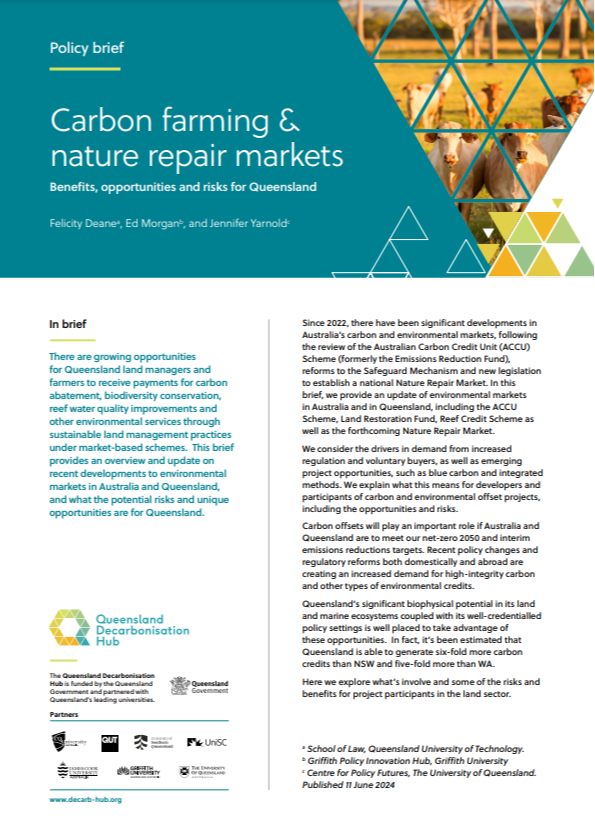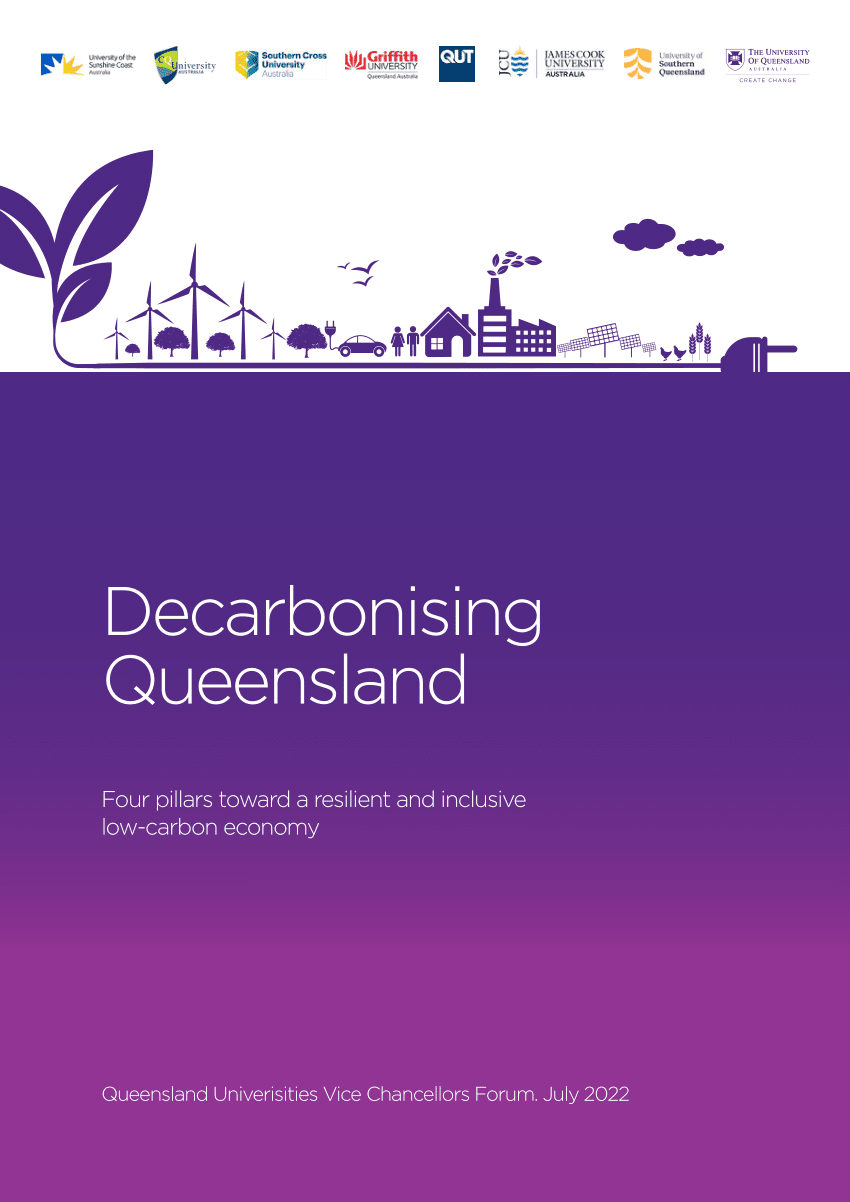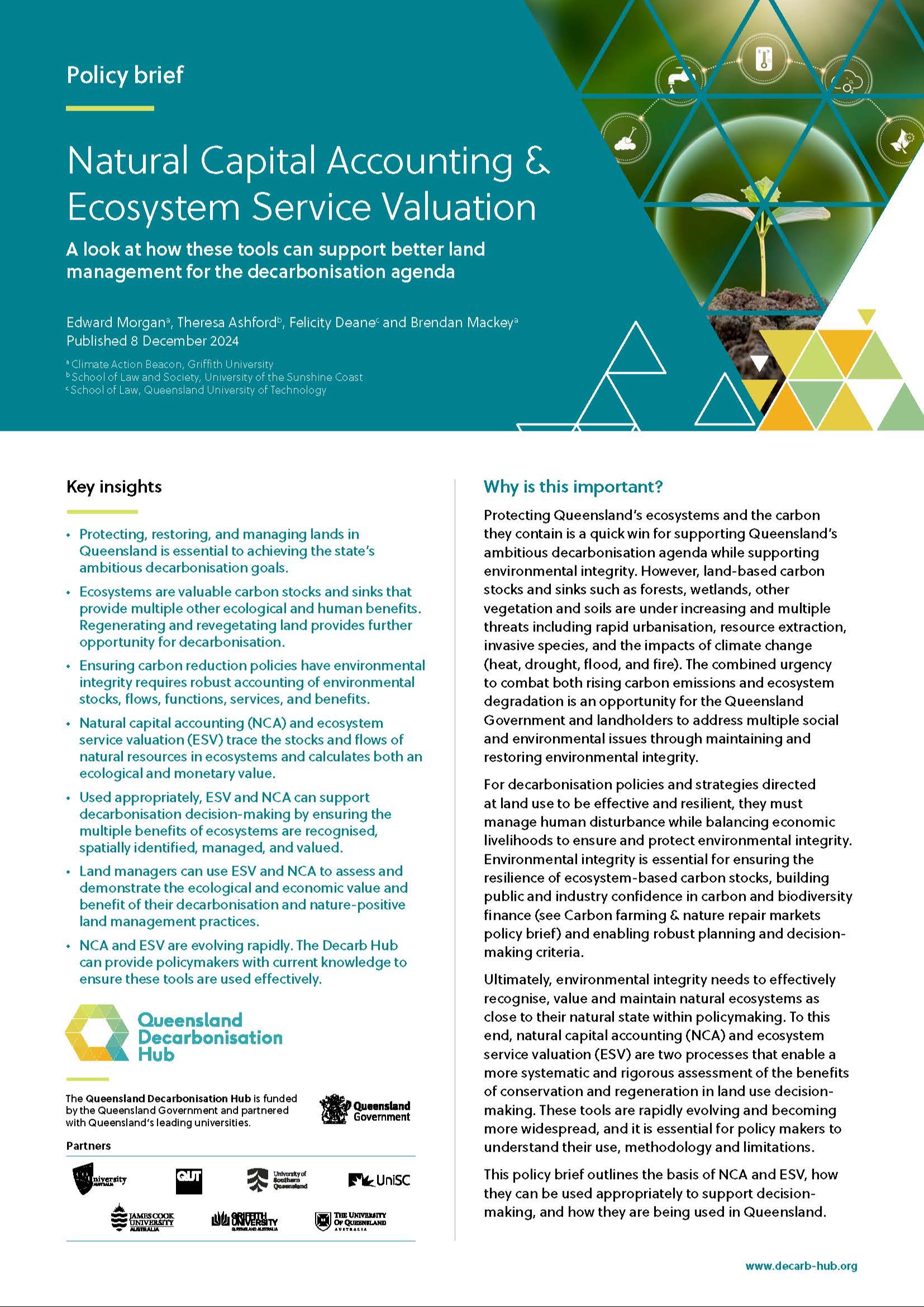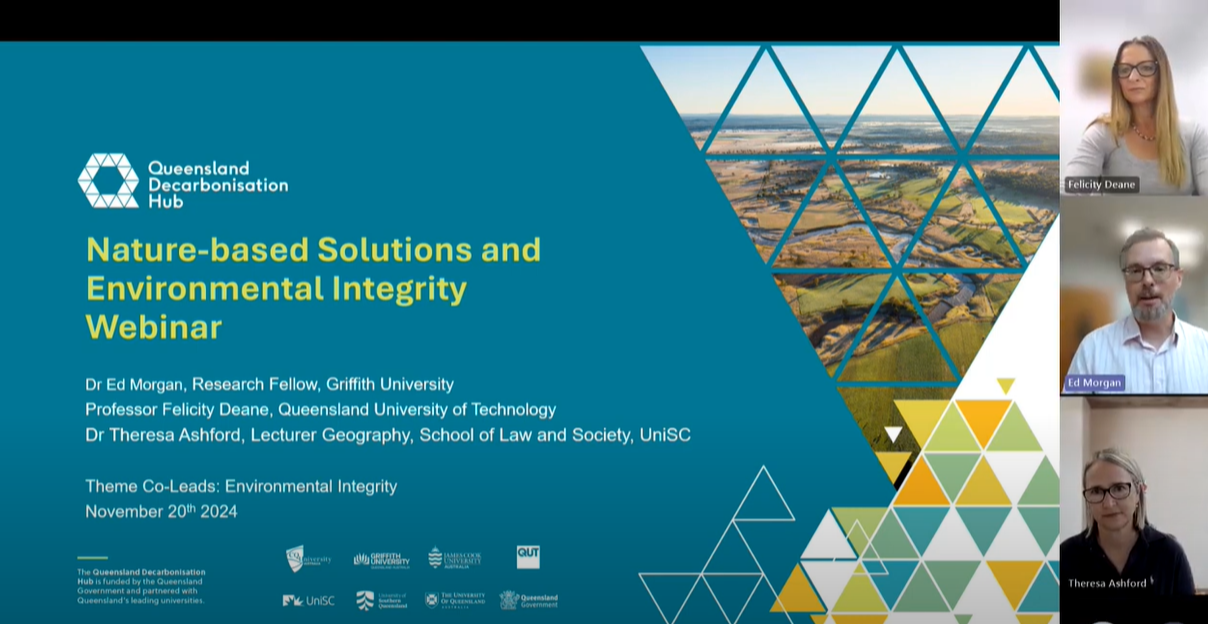Nature-based solutions and environmental integrity
What nature-based solutions could help to decarbonise Queensland and how do we ensure solutions have high environmental integrity?








Why
Queensland’s land sector has a major role to play in reducing emissions and capturing additional carbon which can provide social, economic and environmental co-benefits for communities, the ag sector, biodiversity and more.
At the same time, there is a risk that poorly designed and implemented solutions can produce unintended consequences, potentially increasing, rather than reducing emissions.
Approach
A view from all angles builds better outcomes.
We will bring together people from different fields to examine the value and impact of nature-based decarbonisation solutions.
Drawing on knowledge from the ecological and environmental sciences, as well as environmental law, micro-economics, policy and social sciences, we will explore to what degree and how can decarbonisation options have high environmental integrity.
Aims
Identify opportunities and risks of decarbonisation mechanisms in the land sector.
Account for and value the co-benefits of nature-based mitigation solutions.
Assess opportunities to harmonise competing demands on land, maintain co-benefits and optimise decarbonisation outcomes.
Projects
- An Outstanding Opportunity: Using Solar Farms for Biodiversity Preservation - Professor Lin Schwarzkopf, James Cook University
- Optimising on-farm carbon footprint measurements for the verification of low carbon commodities – Dr Naoya Takeda, QUT
- Unique fire-resistant Qld peatlands: a nature based carbon storage solution - Professor Cathy Yule, University of the Sunshine Coast


















